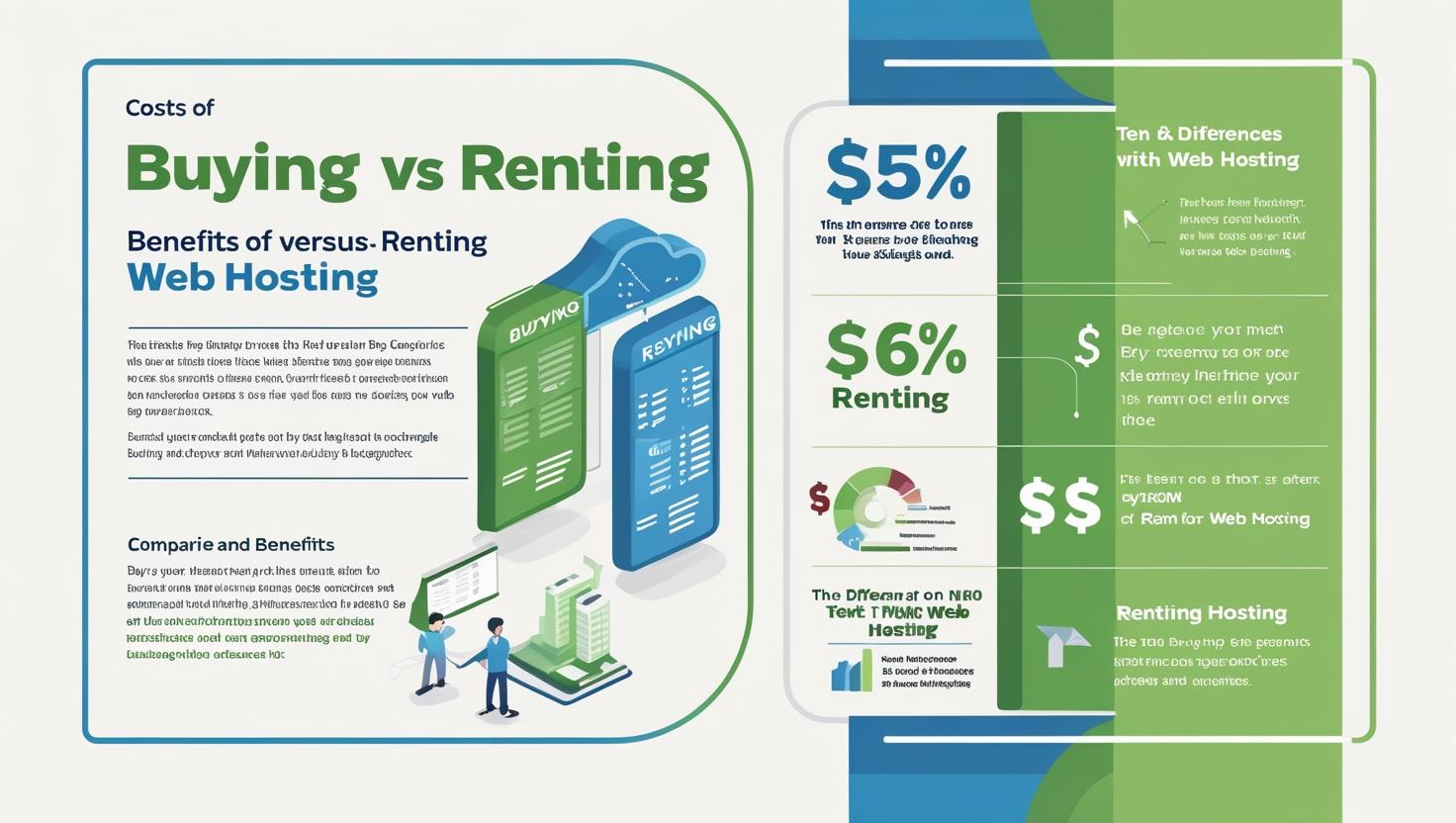
When to Buy vs Rent Hosting
When to Buy vs Rent Hosting: Choosing What’s Right for Your Website
One of the most common dilemmas for website owners is whether to buy or rent hosting. While both options let your website live online, they differ in cost, control, and scalability. Understanding the difference can save you money and set you up for long-term success.
🏠 What Does “Renting Hosting” Mean?
Renting hosting means paying a monthly or yearly fee to a hosting provider (like Bluehost, Hostinger, or HiveRift) to use their servers. This is the most common model for:
-
Personal websites
-
Small business websites
-
Startups
-
Blogs or portfolios
✅ Benefits of Renting Hosting:
-
No upfront investment in hardware
-
Comes with support, updates, and maintenance
-
Easy to scale plans as your traffic grows
-
Quick setup and launch
❌ Limitations:
-
Limited control over server configuration
-
Long-term rental may cost more overall
-
Shared hosting can impact performance
🛒 What Does “Buying Hosting” Mean?
Buying hosting usually refers to purchasing or leasing a dedicated server, or even hosting your own website infrastructure (self-hosting). This is ideal for:
-
Large businesses
-
High-traffic websites
-
Developers or SaaS products
-
Companies with in-house IT teams
✅ Benefits of Buying Hosting:
-
Full control over hardware and software
-
Better performance and security
-
Customizable configurations
-
One-time investment for long-term use
❌ Limitations:
-
Requires technical expertise
-
Higher upfront costs
-
You manage maintenance, backups, and security
🤔 When Should You Rent Hosting?
Choose rented hosting when:
-
You’re starting a new website on a budget
-
You want someone else to manage server security and updates
-
You expect moderate traffic and want to upgrade as needed
-
You prefer predictable monthly pricing
✅ Best for: Bloggers, small businesses, local service providers, personal sites
🧠 When Should You Buy Hosting?
Choose bought hosting when:
-
Your site handles thousands of daily visitors
-
You need custom server environments
-
Uptime, speed, and security are mission-critical
-
You want full server control for enterprise needs
✅ Best for: E-commerce, large brands, software companies, and data-heavy platforms
📌 Summary Table: Buy vs Rent Hosting
| Feature | Rent Hosting | Buy Hosting |
|---|---|---|
| Cost | Low monthly/yearly | High upfront, low over time |
| Maintenance | Done by provider | Done by you/your team |
| Control | Limited | Full |
| Scalability | Easy with provider | Manual or costly |
| Setup Time | Fast | Moderate to long |
| Best For | Individuals, startups, SMBs | Enterprises, tech-savvy teams |
✅ Final Thoughts: Choose Based on Your Goals
There’s no one-size-fits-all answer—buying vs renting hosting depends on your goals, technical know-how, and future plans. For most users, renting hosting provides flexibility and ease. But for large-scale businesses, buying hosting delivers unmatched control and power.